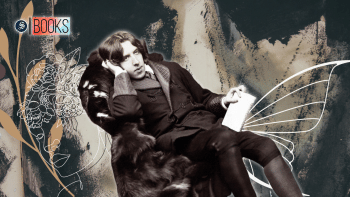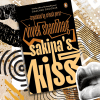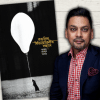Media literacy and the case of overrated classics

A few days ago, while I was aimlessly scrolling through Twitter (now X), I chanced upon a tweet which had me flying into a rage like the rest of BookTwitter. It was an article titled "8 overrated literary classics and 8 books to read instead". Among a few other popular classics, the list included Jane Austen's well-loved Pride and Prejudice (first published 1813), Vladimir Nabokov's controversial Lolita (1955), and J. D. Salinger's influential debut The Catcher In The Rye (1951). Now, I admit it sure isn't a crime to dislike popular books, but what really caught my attention was not the content of the article, rather how the writer critiqued them. The critique, or the lack thereof, made me rethink the importance of media literacy in this withering print media age.
What makes a book a classic? The main features include longevity and use of subversive and universal themes. A classic must transcend time and geography, act as a mirror to the society during that time period, and construct new discourses and conversations around the subject matter and themes. Clearly, the abovementioned books have succeeded in doing so. They have stood the test of time and sustained relevance even after many decades, and even centuries. However, it wouldn't be much of a generalisation to say that the rise of "BookTok" has created an influx of readers, only interested in reading books which require little to null critical thinking. In consequence, when the same readers attempt to read books with complex subjects and themes, many of them may end up misinterpreting the texts.
Coming back to the "overrated classics" status, I was rather amused by the justification behind it. In the writer's opinion, titles like Pride and Prejudice are not all that compelling and Austen's every book was a bigger snoozer than the last. He found The Catcher In The Rye dated and said that even though he understands why and how it became a classic, it's nothing groundbreaking in 2023. The saddest review was perhaps of Lolita, which said "a grown adult man lusting after a 12-year-old girl should be justification enough for some not to read it." Although the general consensus on these books differs from such reductive labelling, the writer is not the only one to misinterpret these texts.
True, that the romance-ification of Austen's novels may have done more damage than good to her reputation as a literary genius. I have seen many people dismiss her books as simply as "people going to each other's houses and falling in love." Whilst Austen showed her protagonists falling and failing in love, her novels cannot be categorised as "romance". Her novels were essentially satire and social commentary on class and gender. Her keen insights into human follies and flaws were illustrated through satirical reflection and critique of the regency society. Fran Lebowitz rightly called Austen as the "greatest ironists of all time, keenest observers of human nature." In Pride and Prejudice, she used romance as a framing device, and portrayed issues such as women's property rights, class divide, and how marriage was nothing but an economic transaction. The cultural image of her as a romcom writer has put restrictions on the timelessness of her fiction.
Next, we have Holden Caulfield, the idiosyncratic protagonist in J. D. Salinger's The Catcher In The Rye whose portrayal had led to two major polarising perceptions among the readers in recent times. On one side, many adolescents identify with him and think of him as a rebel. And the other side finds him a phoney and overindulgent white teenager. These oversimplified narratives of Holden as a character overlooks the underlying subtexts of the novel. The Catcher In The Rye is a book depicting the destructive essence of unresolved grief and existentialism. Holden is a traumatised adolescent who is grieving the death of his brother and his grief transforms into sheer frustration towards the world and the authoritative figures. Perceiving him merely as a whiny teenager dismisses the literary value of the book.
Finally, Nabokov's Lolita has been unarguably one of the most controversial books of the 20th century. Many readers and critics alike view this book as "an apology for pedophilia". The cultural image of Lolita as seductress has perpetuated an overwhelming misinterpretation of the book claiming it as a love story. Readers making such claims fail to comprehend that Humbert is both the narrator of the book and perpetrator of heinous crimes. Throughout the whole book, he gaslights the readers into thinking that he is a victim of Lolita's seduction. Missing the unreliability of the narrator means missing the main message of this book.
Such oversimplified interpretations of denser and complex texts illustrate the lack of media literacy and reading comprehension skills. In this digital age, we are processing a large amount of information everyday and it's important to learn media literacy in order to see the bigger picture. Saying one should not read Lolita because the protagonist is a paedophile is like saying one should not watch movies which have depictions of murder. The dearth of media literacy has led many to believe that depiction of disturbing themes means justifying said disturbing acts. Such criticisms miss the subtexts and underlying themes and end up creating a distorted image of art and literature.
Nawshin Flora is currently daydreaming about catching up to her never ending TBR list. Remind her to get enough sleep at [email protected].

 For all latest news, follow The Daily Star's Google News channel.
For all latest news, follow The Daily Star's Google News channel. 











Comments